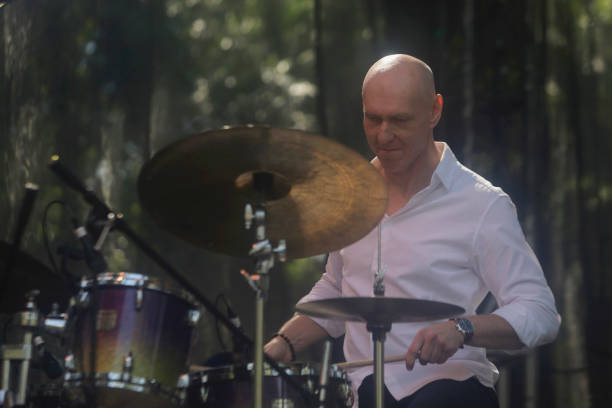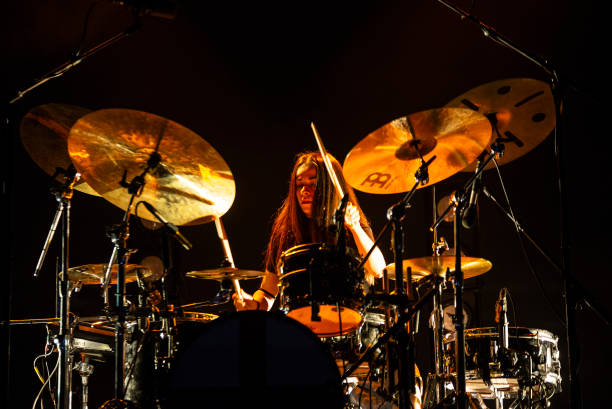The art of storytelling in film and television owes much of its magic to sound. Among the most dynamic contributors to this auditory landscape are Drummers in Film and TV Soundtracks, whose beats and rhythms elevate moments of tension, joy, and suspense. The role of drumming in soundtracks is both profound and versatile, creating emotional depth, driving narratives, and punctuating key scenes. As a result, drummers have become pivotal in shaping the sonic identities of countless productions.

The Power of Percussion in Storytelling
Percussion has always been a fundamental element in music, and its influence in film and TV soundtracks is undeniable. Drummers bring a unique energy that transcends genres, from thunderous action sequences to quiet, introspective moments. The percussive beats often mimic the emotional cadence of the story, acting as a heartbeat that pulses through the narrative. In soundtracks, drummers are not just musicians—they are storytellers, amplifying the emotional stakes of a scene through rhythm and tempo.
In action films, for instance, the intense drumming patterns underline car chases, battles, or climactic confrontations. The iconic use of taiko drums in movies like “The Last Samurai” creates a sense of grandeur and urgency, while jazz drumming in “Birdman” brings a frenetic, improvisational energy that mirrors the protagonist’s inner turmoil. In each case, the drummer’s role extends beyond music; they craft the emotional atmosphere that draws viewers deeper into the story.
Drummers in Film and TV Soundtracks and their Iconic Presence
Some of the most memorable soundtracks owe their distinctiveness to the contributions of drummers. Think of Hans Zimmer’s “Inception,” where the percussive elements create an otherworldly tension, or “Whiplash,” where jazz drumming becomes a character in itself. These soundtracks demonstrate how drumming can be used to define a film’s identity, adding layers of complexity and emotion to its narrative.
Television also showcases the power of drumming. Shows like “Game of Thrones” employ percussion to build suspense and foreshadow dramatic events. The rhythm becomes a subtle yet integral part of the viewing experience, guiding the audience’s emotional journey. Drummers in these productions are not merely background players; they are instrumental in shaping the series’ cultural resonance.
The Evolution of Drummers in Film and TV Soundtracks
The role of drummers in Film and TV soundtracks has evolved significantly over time. Early Hollywood relied on orchestral arrangements where percussion played a supporting role. However, as genres diversified, so did the use of drums. Rock, jazz, and world music introduced new textures, expanding the sonic palette available to composers.
Modern productions often blend live drumming with electronic beats, creating hybrid scores that feel both timeless and cutting-edge. Drummers now collaborate with composers to experiment with unconventional rhythms and sounds. For example, in “Mad Max: Fury Road,” the drum-heavy soundtrack blurs the line between diegetic and non-diegetic music, with on-screen drummers driving the narrative as much as their off-screen counterparts.
Collaboration Between Drummers and Composers
The synergy between drummers and composers is crucial in crafting memorable soundtracks. Composers rely on drummers to bring their visions to life, translating abstract ideas into tangible rhythms. This collaboration often results in innovative approaches to storytelling.
In films like “Dunkirk,” Hans Zimmer worked closely with drummers to create a ticking motif that heightened the tension. Similarly, in “Black Panther,” composer Ludwig Göransson incorporated African drumming to root the score in cultural authenticity. These examples highlight the importance of drummers as creative partners in the scoring process.
Why Drummers Are Indispensable in Media Music
Drummers bring a level of dynamism and adaptability that few other musicians can match. Their ability to shift between styles, tempos, and intensities makes them invaluable in media music. Whether it’s the primal beats of a war drum or the subtle brushwork of jazz percussion, drummers provide the rhythmic foundation that anchors a soundtrack.
Moreover, drummers often serve as the emotional core of a score. Their rhythms can evoke primal instincts, elicit nostalgia, or inspire exhilaration. This versatility ensures that drummers remain at the forefront of musical storytelling in film and TV.
The Future of Drummers in Film and TV Soundtracks
As technology continues to advance, the role of Drummers in Film and TV Soundtracks is poised to evolve even further. Virtual instruments and AI-driven compositions are becoming more prevalent, but the human touch of a drummer remains irreplaceable. The imperfections and nuances of live drumming bring a level of authenticity that technology cannot replicate.
Future collaborations between drummers and composers are likely to explore even more experimental territory. The blending of traditional drumming techniques with electronic and synthesized sounds will continue to push the boundaries of what’s possible in media music. As filmmakers and showrunners seek to create ever more immersive experiences, drummers will undoubtedly play a central role in shaping the soundscapes of tomorrow.
FAQs
Q: What makes drummers so essential to soundtracks?
A: Drummers provide the rhythmic foundation that drives the emotional and narrative arcs of a film or TV show. Their ability to adapt to different styles and intensities makes them indispensable in crafting versatile and impactful scores.
Q: How do drummers collaborate with composers?
A: Drummers work closely with composers to translate abstract musical ideas into tangible rhythms. This collaboration often involves experimenting with different techniques and sounds to achieve the desired emotional impact.
Q: Are live drummers still used in modern soundtracks?
A: Yes, live drummers remain a crucial part of many soundtracks. While technology has introduced virtual instruments, the authenticity and nuance of live drumming continue to be highly valued.
Q: Can drumming styles vary across genres in soundtracks?
A: Absolutely. Drumming styles in soundtracks range from orchestral percussion to jazz, rock, and world music. Each style brings its own unique texture and emotional resonance to a production.
Drummers in film and TV soundtracks are more than musicians—they are storytellers, collaborators, and innovators. Their contributions elevate the art of storytelling, ensuring that the rhythm of a scene resonates long after the credits roll. As the world of media music continues to evolve, the timeless artistry of drumming will remain an essential force in shaping the stories we see and hear.
